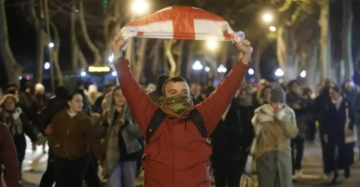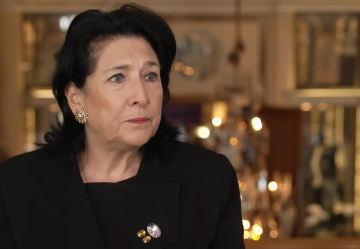Last year, the country was granted candidate status for EU membership, but recent events indicate a retreat from reforms and an increasing influence from Russia.
According to The Economist, in May, Georgia enacted a law on "foreign agents," which has been used to restrict the activities of democratic organizations. This move has been a clear signal of the government's shift in policy direction under Bidzina Ivanishvili, who has close ties to Russia.

The European Union criticized the new law as it contradicts Georgia's commitments to reforms ahead of joining the bloc. However, this did not deter the "Georgian Dream," which abandoned reforms in October, leading to election fraud and mass protests. The opposition and human rights activists condemned the government for violence and voter intimidation, while international organizations, including Amnesty International, confirmed numerous cases of torture and mistreatment of protesters.
Additionally, President Salome Zourabichvili, whose term expires on December 29, refused to recognize the parliamentary elections as legitimate. Meanwhile, the college dominated by the "Georgian Dream" elected a new president, a former Manchester City footballer, in a vote with only a single candidate.

The publication states that the West should support Zourabichvili, who has refused to yield to pressure from the Kremlin: “sanctions should be imposed on those responsible for violence and election fraud. Some countries, including America, Ukraine, and the Baltic states, have started with travel bans on several officials, and in some cases Mr. Ivanishvili, who does not hold a government position. These measures could be intensified by targeting lower levels of power (for instance, to include those running state media) and extending them to the families of the subjects. The most responsible individuals should have their assets frozen.”
Source: economist.